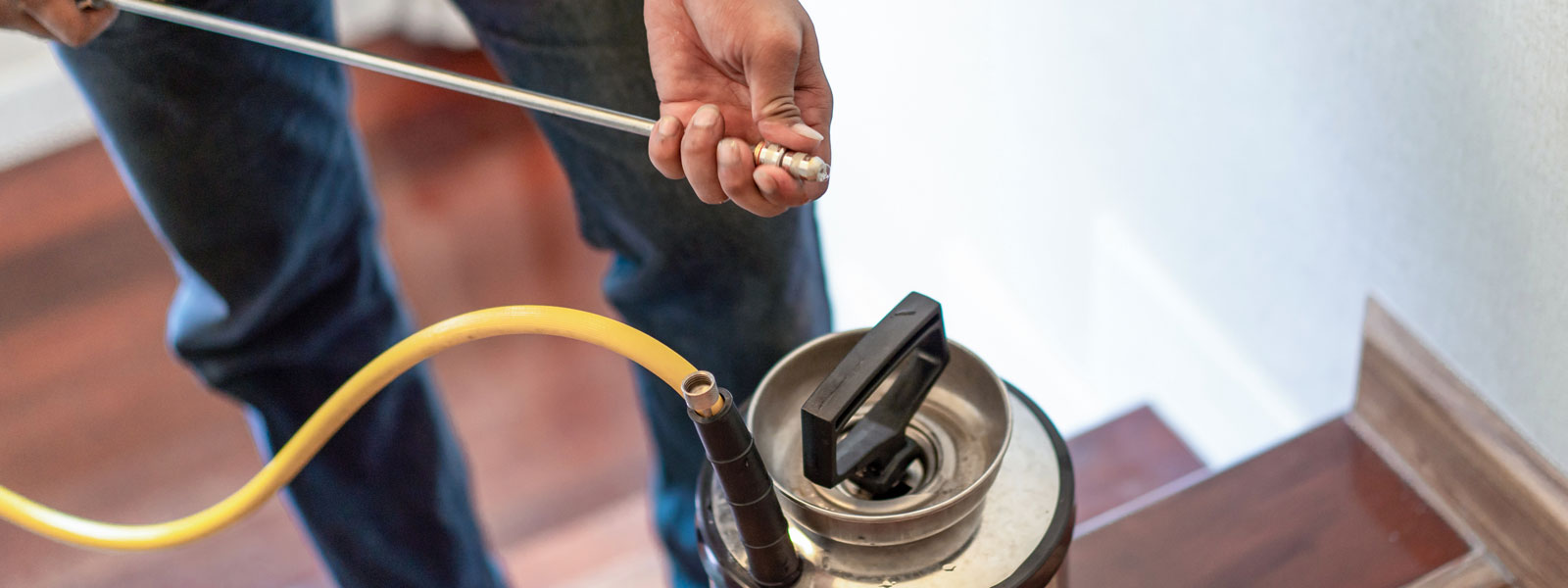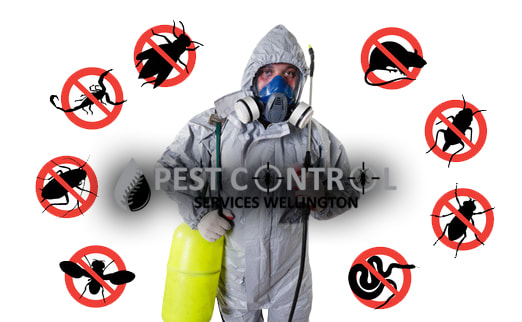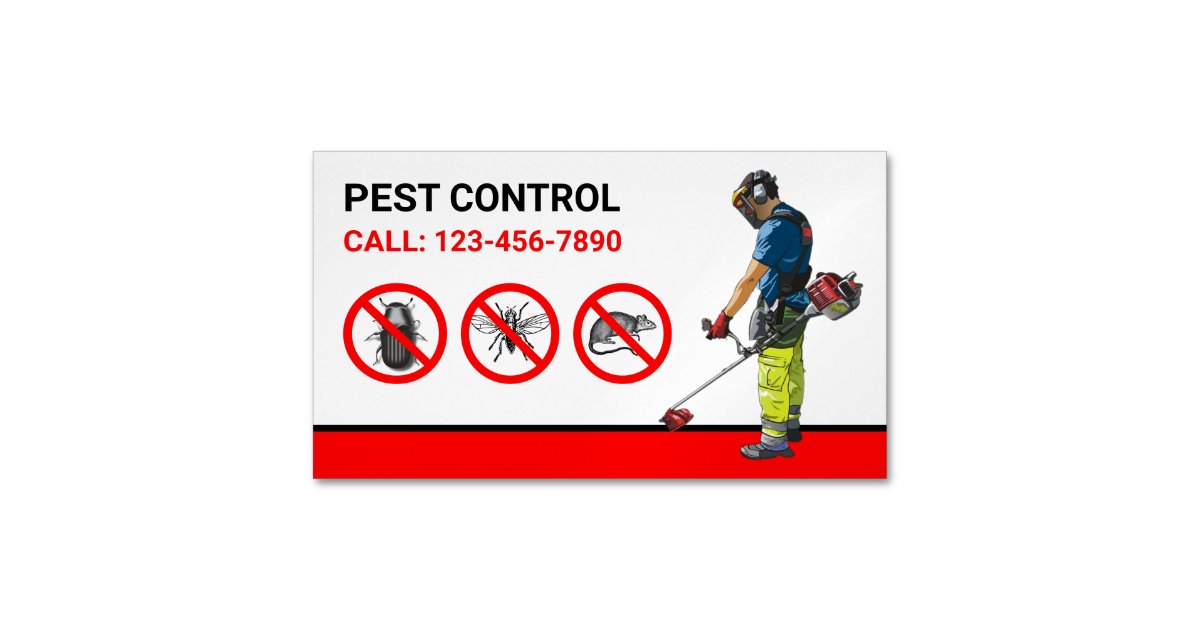Recognizing the Numerous Techniques to Bug Control: A Comprehensive Guide

Natural Pest Control Methods
Employing green strategies such as friend growing and organic pest control is important for efficiently handling parasites in farming setups. Companion growing includes growing different crops in proximity to deter pests, boost nutrient uptake, and enhance general crop wellness. Growing marigolds together with tomatoes can help repel nematodes. Intercropping maize with vegetables can disrupt the reproduction patterns of insects like corn borers.
Biological parasite control entails introducing all-natural killers or virus to regulate pest populaces. Ladybugs, as an example, prey on aphids, regulating their numbers without the requirement for chemical pesticides. One more instance is making use of Bacillus thuringiensis (Bt), a bacterium that targets specific insect pests while being harmless to human beings, pets, and beneficial bugs.
These green techniques not just minimize the dependence on synthetic chemicals but additionally assist maintain biodiversity and soil wellness. By incorporating all-natural bug control strategies right into farming techniques, farmers can accomplish lasting pest management while reducing unfavorable influences on the environment.

Chemical Parasite Control Solutions
In addition to natural pest control techniques, the usage of chemical bug control remedies plays a significant role in efficiently handling pest populations in agricultural atmospheres. Chemical bug control options are created to target details pests that may cause comprehensive damage to crops. These solutions commonly have artificial chemicals that are made to get rid of parasites promptly and successfully.
Among the vital benefits of chemical bug control options is their performance in managing insect infestations on a large scale. Farmers can use these options making use of various techniques such as spraying, airing out, or seed therapy to protect their crops from dangerous bugs, weeds, and diseases. In addition, chemical bug control services are relatively very easy to apply and can provide quick results, helping farmers guard their yields and minimize financial losses.
However, it is vital to use chemical bug control solutions carefully to minimize prospective adverse effects on the setting, non-target organisms, and human health and wellness. Proper application methods, adherence to safety and security guidelines, and routine surveillance are essential to make certain the responsible use of chemical parasite control solutions in agricultural techniques.
Organic Insect Control Approaches
Organic parasite control approaches take advantage of all-natural killers or pathogens to handle bug populaces in farming settings efficiently. This approach offers a green and sustainable service to pest administration, lowering the dependence on synthetic chemicals and minimizing injury to the setting. One usual biological control method is the intro of all-natural opponents, such as ladybugs or parasitical wasps, to target details parasites. These killers feed on the pests, helping to control their populations naturally - pest control clovis.
Another organic control method involves using microorganisms like fungi, infections, or bacteria to contaminate and kill bugs. Overall, organic pest control techniques offer a sustainable and targeted remedy to pest management in farming.
Integrated Parasite Management (IPM)
Integrated Bug Management (IPM) is a detailed strategy that combines different parasite control strategies to successfully take care of and minimize pest populations in farming systems. IPM concentrates on long-lasting prevention of parasites through a combination of organic, social, physical, and chemical control approaches. By integrating these different techniques, IPM intends to reduce reliance on chemical pesticides, lessen ecological influence, and promote sustainable insect management practices.
One secret element of IPM is using organic controls such as all-natural killers, bloodsuckers, and pathogens to regulate pest populations. This method utilizes the power of nature to preserve an equilibrium between insects and their natural opponents without triggering damage to the atmosphere.
Furthermore, IPM includes cultural methods like crop habitat, sanitation, and turning adjustment to develop negative problems for insects and disrupt their life cycles. Physical controls such as barriers, traps, and composts are also utilized to stop pest problems.
Mechanical and Physical Pest Control Strategies
Using find more information non-chemical techniques, such as physical and mechanical parasite control strategies, is a crucial facet of thorough insect management strategies, building upon the structure of Integrated Bug Management's all natural method. Mechanical pest control includes making use of physical obstacles or traps to avoid parasites from accessing and harming crops or frameworks. This technique can consist of strategies like mounting displays on home windows, utilizing row covers in agriculture, or using sticky traps to capture insects.
Physical bug control methods, on the various other hand, concentrate on directly removing insects via physical means. Using warm therapies to get rid of bed bugs or vacuuming up bugs like ants or spiders can be effective methods to take care of infestations without the use of chemicals. By integrating these physical and mechanical pest control see post methods right into an Integrated Parasite Management plan, individuals and experts can reduce reliance on pesticides while still properly lessening and taking care of pest populaces damages.
Conclusion

In enhancement to natural parasite control methods, the use of chemical insect control solutions plays a considerable duty in successfully managing pest populaces in agricultural atmospheres.One of the key benefits of chemical pest control options is their effectiveness in managing parasite infestations on a big range.Integrated Insect Monitoring (IPM) is a detailed strategy that combines numerous pest control techniques to properly manage and lessen pest populaces pest control clovis in agricultural systems.Using non-chemical approaches, such as mechanical and physical insect control strategies, is an important facet of thorough insect administration approaches, building upon the foundation of Integrated Insect Monitoring's all natural approach. By integrating these physical and mechanical parasite control techniques into an Integrated Insect Administration strategy, people and specialists can decrease reliance on pesticides while still successfully minimizing and handling pest populations damage.
Comments on “Pest Control Clovis: Get Rid of Vermin Finally”